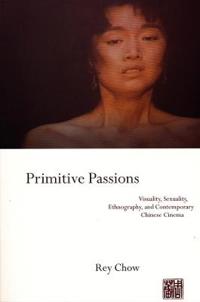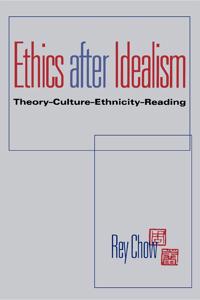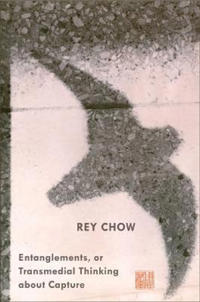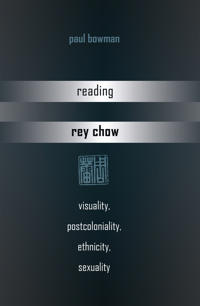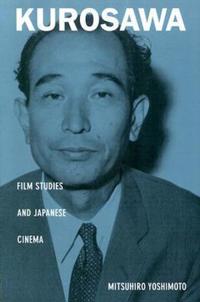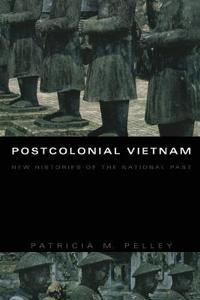Primitive Passions (Pocket)
avRey Chow
ISBN: 9780231076838 - UTGIVEN: 1995-02Chow situates contemporary Chinese film within the broad context of Chinese history and culture, giving readers a glimpse of the unique shared identity that characterizes the current crop of outstanding filmmakers, such as Chen Kaige and Zhang Yimou.[...]
The Protestant Ethnic and the Spirit of Capitalism (Häftad)
avRey Chow
ISBN: 9780231124218 - UTGIVEN: 2002-09In late-capitalist Western society, cross-ethnic cultural transactions are an inevitable daily routine. Yet, according to acclaimed cultural critic Rey Chow, the notion of ethnicity as it is currently used is theoretically ambivalent, confusing, indeed self-contradictory, straddling as it does an un[...]
Sentimental Fabulations, Contemporary Chinese Films: Attachment in the Age of Global Visibility (Övrig)
avRey Chow
ISBN: 9780231133333 - UTGIVEN: 2007-03-02What is the sentimental? How can we understand it by way of the visual and narrative modes of signification specific to cinema and through the manners of social interaction and collective imagining specific to a particular culture in transition? What can the sentimental tell us about the precarious[...]
The Rey Chow Reader (Häftad)
ISBN: 9780231149952 - UTGIVEN: 2010-06Rey Chow is arguably one of the most prominent intellectuals working in the humanities today. Characteristically confronting both entrenched and emergent issues in the interlocking fields of literature, film and visual studies, sexuality and gender, postcolonialism, ethnicity, and cross-cultural pol[...]
Ethics After Idealism (Häftad)
avRey Chow
ISBN: 9780253211552 - UTGIVEN: 1998-06In "Ethics after Idealism", Rey Chow explores once again the issue of cultural otherness that has been central to her work since the publication of "Woman and Chinese Modernity". At a time when cultural identity has become irreversibly imbricated with the manners in which we read our many 'others', [...]
Cuentos Espanoles De Fines Del Siglo XIX (Häftad)
avRey Chow
ISBN: 9780486445052 - UTGIVEN: 2006-02Entanglements, or Transmedial Thinking About Capture (Häftad)
avRey Chow
ISBN: 9780822352303 - UTGIVEN: 2012-04How might the pornographic be associated with Brecht's and Benjamin's media theories? How are Foucault's and Deleuze's writings on visibilities "postcolonial"? What happens when Ranciere's discussions of art are juxtaposed with cultural anthropology? What does a story by Lao She about collecting rev[...]
Reading Rey Chow (Pocket)
avPaul Bowman
ISBN: 9781433119279 - UTGIVEN: 2013-04This is the first book-length study of the groundbreaking work of Rey Chow, whose work has transformed the fields of postcolonialism, cultural studies, film, ethnicity and gender. It describes and explains the features and the breadth of Chow's interventions and illustrates Chow's arguments by way o[...]
Kurosawa (Pocket)
avMitsuhiro Yoshimoto, Rey (EDT) Chow, Harry (EDT) Harootunian
ISBN: 9780822325192 - UTGIVEN: 2000-05The films of Akira Kurosawa have had an immense effect on the way the Japanese have viewed themselves as a nation and on the way the West has viewed Japan. In this comprehensive and theoretically informed study of the influential director's cinema, Mitsuhiro Yoshimoto definitively analyses Kurosawa'[...]
Postcolonial Vietnam (Pocket)
avPatricia M. Pelley, Rey (EDT) Chow, Harry (EDT) Harootunian
ISBN: 9780822329664 - UTGIVEN: 2003-02New nations require new histories of their struggles for nationhood. "Postcolonial Vietnam" takes us back to the 1950s to see how official Vietnamese historians and others rethought what counted as history, and who should be included as participants and agents in the story.[...]

